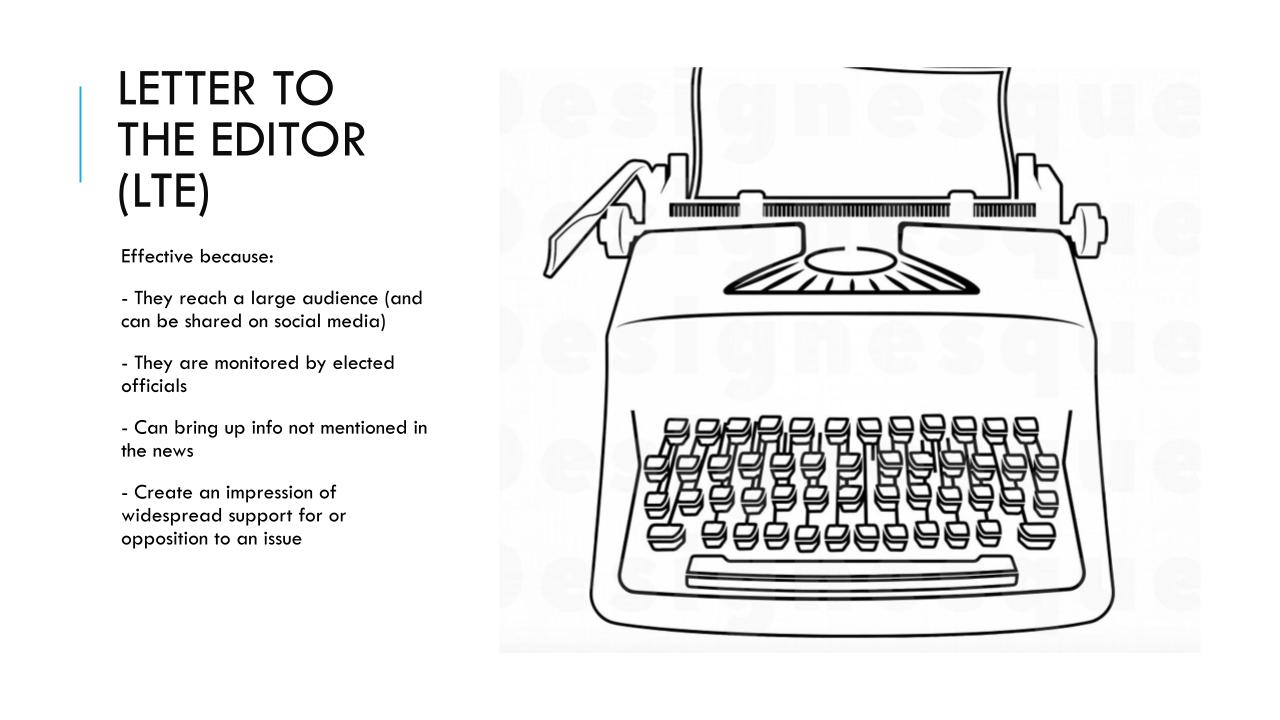
03.11.21
Civic Engagement Brown Bag Session 2: Storytelling with the Written Word Featuring Paul Lask
By bgoodwin"Average people and the average community can change the world." -Lois Gibbs
"Does anyone know this woman Lois Gibbs? Does this name ring a bell?" Paul Lask asked. He responded to the silent audience with the story of how Gibbs, an an unassuming housewife with a high school degree, became a leading environmental activist. When she learned that her entire community sat on a toxic dumpsite, she mobilized by petitioning neighbors and bringing her battle to the city, state, and federal governments... eventually becoming known as "The Mother of Superfund." How did she get there? She harnessed her passion about an issue with the power of her words. Read more about Gibbs here.
This tale kicked off our second Civic Engagement Brown Bag Session: Storytelling with the Written Word. It was another success, with a rapt audience and very useful insight into how to effectively write our stories. We owe a big thank you to guest presenter Paul Lask for joining us and bringing his experience to the table! Paul presented such great input and we had a lively Q and A session. This blog aims to summarize the key takeaways, but for the full recording of the live Zoom meeting, please scroll down to the YoutTube video at the bottom.
On Writing
If you are passionate about an issue and want people to listen, learning to write your story is one of the most impactful things you can do. Paul reminded us that "the beauty of the written word in 2021 is that it slows us down." Whether the audience is your friends, community, or legislators, here are tips and techniques that will make your writing go a long way towards achieving progress.
The Basics
* Keep it brief and focused on one issue (be concise—no longer than a single spaced page)
* Who Are You and What do You Want?
*In the first paragraph, tell your legislators that you are a constituent and identify the issue about which you are writing. If your letters pertains to a specific piece of legislation, it helps to identify it by its bill number (e.g. H.R. ____ or S. _____).
* Hit your three most important points: Choose the three strongest points that will be most effective in persuading legislators to support your position and flesh them out.
Personalize It
* Tell your elected official why this legislation matters in his or her community or state.
* If you have one, include a personal story that shows how this issue affects you and your family. A constituent's personal stories can be very persuasive as your legislator shapes his or her position.
* Have you ever voted for this elected official? Have you ever contributed time or money to his or her campaign? Are you familiar with her through any business or personal relationship?
*The closer your legislator feels to you, the more powerful your argument is likely to be.
YOU are the Expert
*Your legislator's job is to represent you. You should be courteous and to the point, but don't be afraid to take a firm position. Remember that often your elected official may know no more about a given issue than you do.
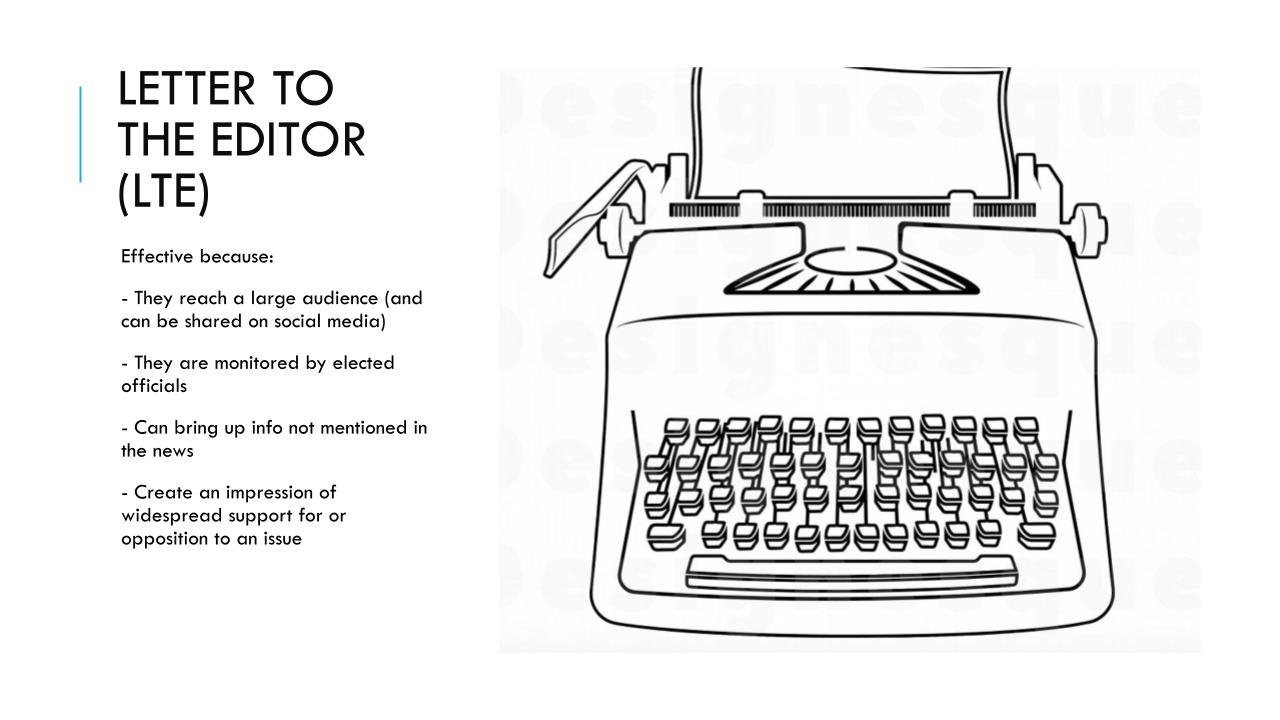
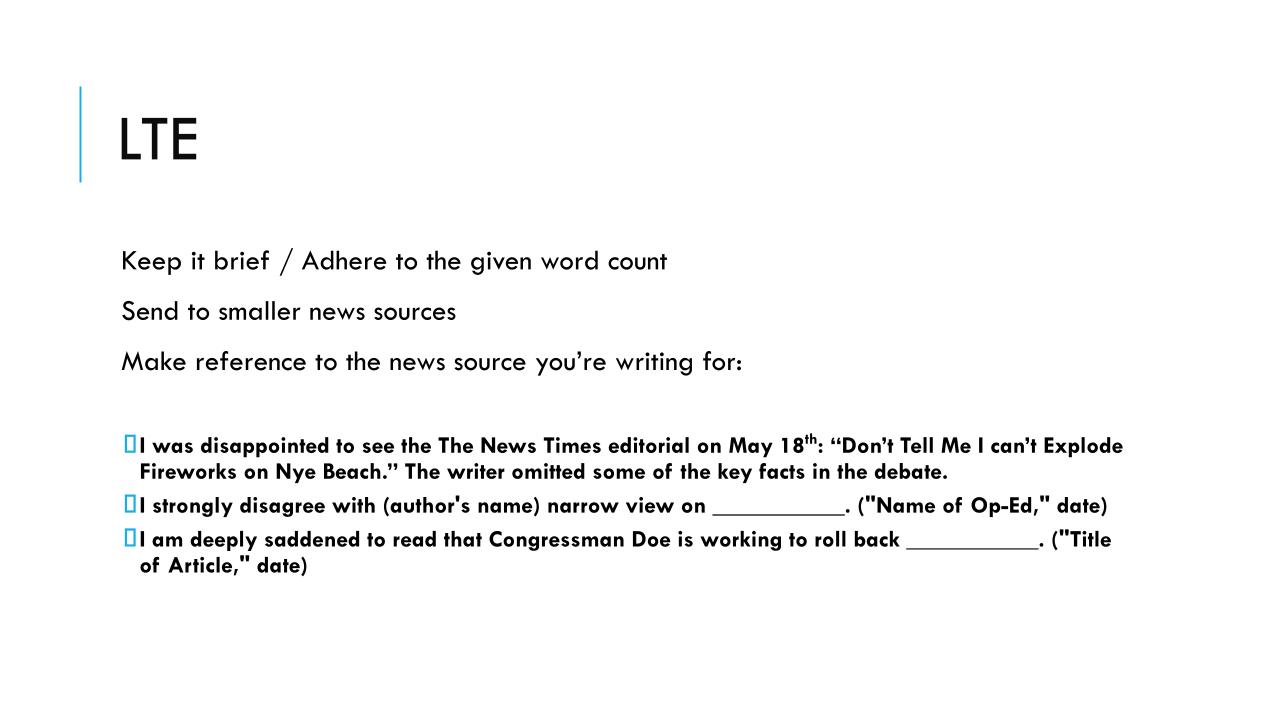
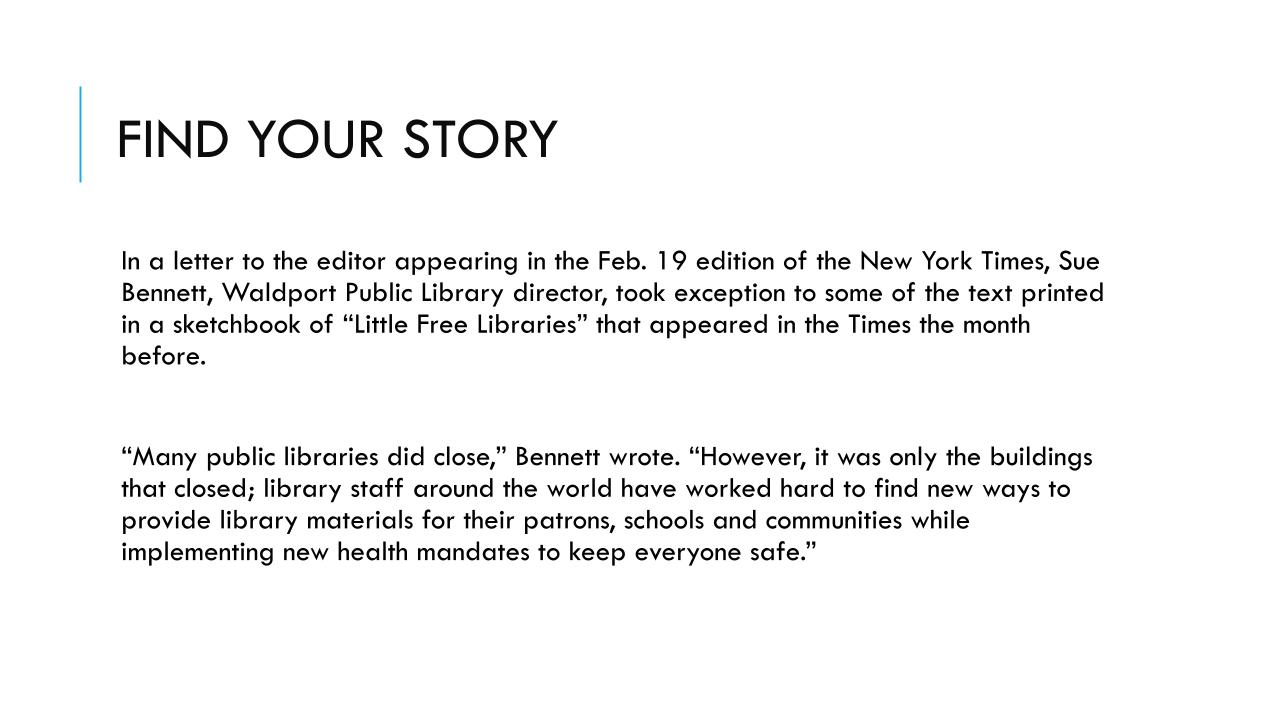
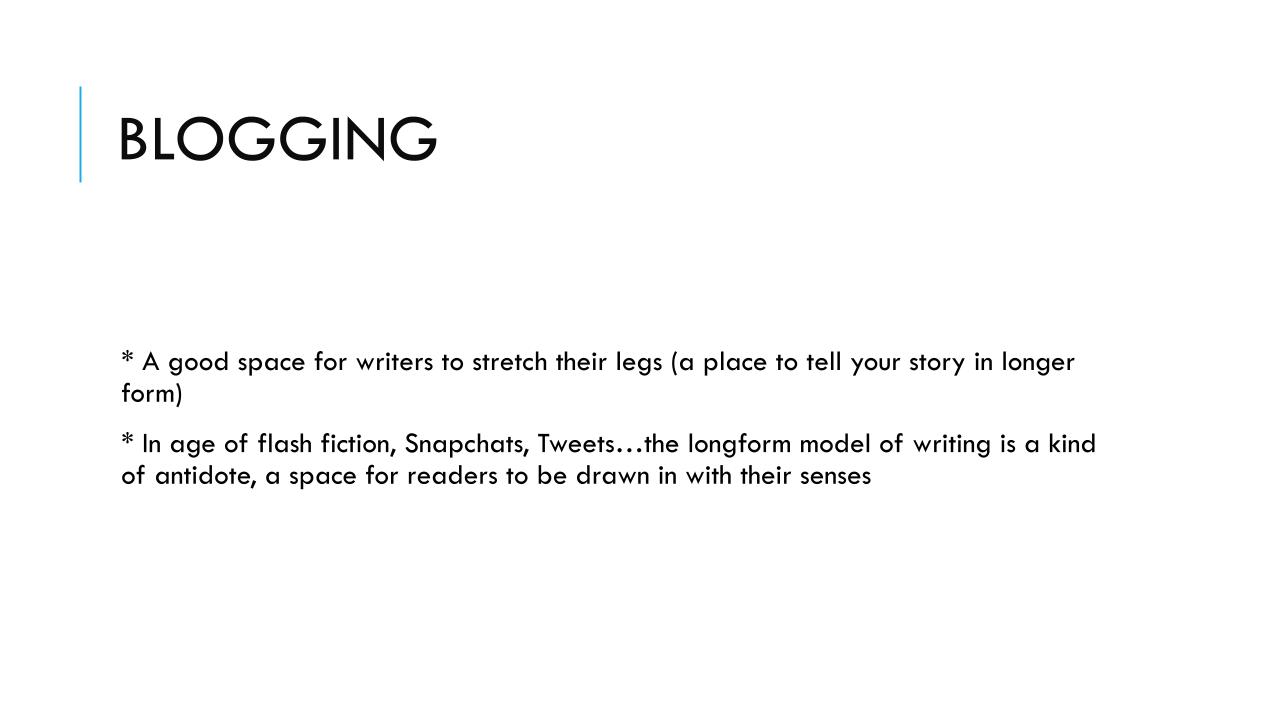
Beyond the basics of letter writing, Paul discussed blending the classical rhetorical appeals of logos, ethos, and pathos in our compositions.




Salient Points from the Q and A
*Read your drafts aloud to yourself and others.
*By writing, you have to slow down and revise. Striking balance of heat and frustration and injustice with being civil is not easy. Revising and sharing helps. It gets out of your own echo chamber and into the world at large.
*Using quotes from elected officials can be incredibly effective. Politicians are ultimately characters trying to present themselves as likable. They’re all about ethos, character. So if you can find paradoxes or contradictions, or you praise them because they are doing great, it will really resonate.
*Try leading with pathos and giving something someone can visualize, or smell. Show them the thing that really impacted you sensually. It’s hard wired and will impact people. Or lead with a scary fact or a quote. Go back to it over and over, read out loud. If you know anyone who would argue against you, that’s always good to debate.
*To initiate being a guest blogger, reach out to communications managers. Do a little bit of leg work to find the specific region and contact. Check out pw. org for more resources on promoting your writing.
*Keep it story form. Beginning, middle and end, so people keep following it. The story is universal, it’s how we think. Be respectful of people’s time.
*On reaching diverse audiences and different market segments: There are so many perspectives and it’s hard to know who’s going to read it, but at the end of the day, it's about knowing where you’re publishing. If it’s written well with good details, hopefully readers will read it.
*WHO is telling the story is often as important as WHAT the story is.
*A personal lesson learned is not to go TOO literary and poetic. Lask learned to temper those emotions when writing politically. As writers we might want to dip our toes in the romantic, but when doing purposeful, political pieces, we need to tone it down.
Time to Take Action!
Tell your story. It could be about a moment in time or your lifelong stewardship of the ocean. What matters is that it is meaningful to you.
Post on social media OR send to us to publish (anonymously if preferred).
Ask to write a guest blog!
